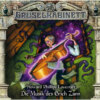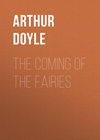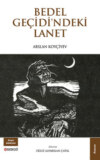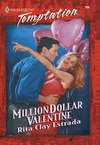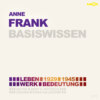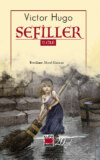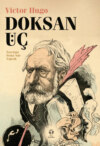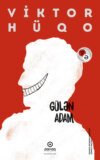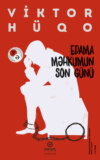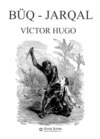Kitabı oku: «Notre-Dame De Paris», sayfa 30
“A head fit for a mule bell!” muttered the archdeacon. “Oh! tell me who preserved for you that life which you render so charming to yourself? To whom do you owe it that you breathe that air, behold that sky, and can still amuse your lark’s mind with your whimsical nonsense and madness? Where would you be, had it not been for her? Do you then desire that she through whom you are alive, should die? that she should die, that beautiful, sweet, adorable creature, who is necessary to the light of the world and more divine than God, while you, half wise, and half fool, a vain sketch of something, a sort of vegetable, which thinks that it walks, and thinks that it thinks, you will continue to live with the life which you have stolen from her, as useless as a candle in broad daylight? Come, have a little pity, Gringoire; be generous in your turn; it was she who set the example.”
The priest was vehement. Gringoire listened to him at first with an undecided air, then he became touched, and wound up with a grimace which made his pallid face resemble that of a new-born infant with an attack of the colic.
“You are pathetic!” said he, wiping away a tear. “Well! I will think about it. That’s a queer idea of yours. – After all,” he continued after a pause, “who knows? perhaps they will not hang me. He who becomes betrothed does not always marry. When they find me in that little lodging so grotesquely muffled in petticoat and coif, perchance they will burst with laughter. And then, if they do hang me, – well! the halter is as good a death as any. ‘Tis a death worthy of a sage who has wavered all his life; a death which is neither flesh nor fish, like the mind of a veritable sceptic; a death all stamped with Pyrrhonism and hesitation, which holds the middle station betwixt heaven and earth, which leaves you in suspense. ‘Tis a philosopher’s death, and I was destined thereto, perchance. It is magnificent to die as one has lived.”
The priest interrupted him: “Is it agreed.”
“What is death, after all?” pursued Gringoire with exaltation. “A disagreeable moment, a toll-gate, the passage of little to nothingness. Some one having asked Cercidas, the Megalopolitan, if he were willing to die: ‘Why not?’ he replied; ‘for after my death I shall see those great men, Pythagoras among the philosophers, Hecataeus among historians, Homer among poets, Olympus among musicians.’”
The archdeacon gave him his hand: “It is settled, then? You will come to-morrow?”
This gesture recalled Gringoire to reality.
“Ah! i’ faith no!” he said in the tone of a man just waking up. “Be hanged! ‘tis too absurd. I will not.”
“Farewell, then!” and the archdeacon added between his teeth: “I’ll find you again!”
“I do not want that devil of a man to find me,” thought Gringoire; and he ran after Dom Claude. “Stay, monsieur the archdeacon, no ill-feeling between old friends! You take an interest in that girl, my wife, I mean, and ‘tis well. You have devised a scheme to get her out of Notre-Dame, but your way is extremely disagreeable to me, Gringoire. If I had only another one myself! I beg to say that a luminous inspiration has just occurred to me. If I possessed an expedient for extricating her from a dilemma, without compromising my own neck to the extent of a single running knot, what would you say to it? Will not that suffice you? Is it absolutely necessary that I should be hanged, in order that you may be content?”
The priest tore out the buttons of his cassock with impatience: “Stream of words! What is your plan?”
“Yes,” resumed Gringoire, talking to himself and touching his nose with his forefinger in sign of meditation, – “that’s it! – The thieves are brave fellows! – The tribe of Egypt love her! – They will rise at the first word! – Nothing easier! – A sudden stroke. – Under cover of the disorder, they will easily carry her off! – Beginning to-morrow evening. They will ask nothing better.
“The plan! speak,” cried the archdeacon shaking him.
Gringoire turned majestically towards him: “Leave me! You see that I am composing.” He meditated for a few moments more, then began to clap his hands over his thought, crying: “Admirable! success is sure!”
“The plan!” repeated Claude in wrath.
Gringoire was radiant.
“Come, that I may tell you that very softly. ‘Tis a truly gallant counter-plot, which will extricate us all from the matter. Pardieu, it must be admitted that I am no fool.”
He broke off.
“Oh, by the way! is the little goat with the wench?”
“Yes. The devil take you!”
“They would have hanged it also, would they not?”
“What is that to me?”
“Yes, they would have hanged it. They hanged a sow last month. The headsman loveth that; he eats the beast afterwards. Take my pretty Djali! Poor little lamb!”
“Malediction!” exclaimed Dom Claude. “You are the executioner. What means of safety have you found, knave? Must your idea be extracted with the forceps?”
“Very fine, master, this is it.”
Gringoire bent his head to the archdeacon’s head and spoke to him in a very low voice, casting an uneasy glance the while from one end to the other of the street, though no one was passing. When he had finished, Dom Claude took his hand and said coldly: “‘Tis well. Farewell until to-morrow.”
“Until to-morrow,” repeated Gringoire. And, while the archdeacon was disappearing in one direction, he set off in the other, saying to himself in a low voice: “Here’s a grand affair, Monsieur Pierre Gringoire. Never mind! ‘Tis not written that because one is of small account one should take fright at a great enterprise. Bitou carried a great bull on his shoulders; the water-wagtails, the warblers, and the buntings traverse the ocean.”
CHAPTER II. TURN VAGABOND
On re-entering the cloister, the archdeacon found at the door of his cell his brother Jehan du Moulin, who was waiting for him, and who had beguiled the tedium of waiting by drawing on the wall with a bit of charcoal, a profile of his elder brother, enriched with a monstrous nose.
Dom Claude hardly looked at his brother; his thoughts were elsewhere. That merry scamp’s face whose beaming had so often restored serenity to the priest’s sombre physiognomy, was now powerless to melt the gloom which grew more dense every day over that corrupted, mephitic, and stagnant soul.
“Brother,” said Jehan timidly, “I am come to see you.”
The archdeacon did not even raise his eyes.
“What then?”
“Brother,” resumed the hypocrite, “you are so good to me, and you give me such wise counsels that I always return to you.”
“What next?”
“Alas! brother, you were perfectly right when you said to me, – “Jehan! Jehan! cessat doctorum doctrina, discipulorum disciplina. Jehan, be wise, Jehan, be learned, Jehan, pass not the night outside of the college without lawful occasion and due leave of the master. Cudgel not the Picards: noli, Joannes, verberare Picardos. Rot not like an unlettered ass, quasi asinus illitteratus, on the straw seats of the school. Jehan, allow yourself to be punished at the discretion of the master. Jehan go every evening to chapel, and sing there an anthem with verse and orison to Madame the glorious Virgin Mary.” – Alas! what excellent advice was that!”
“And then?”
“Brother, you behold a culprit, a criminal, a wretch, a libertine, a man of enormities! My dear brother, Jehan hath made of your counsels straw and dung to trample under foot. I have been well chastised for it, and God is extraordinarily just. As long as I had money, I feasted, I lead a mad and joyous life. Oh! how ugly and crabbed behind is debauch which is so charming in front! Now I have no longer a blank; I have sold my napery, my shirt and my towels; no more merry life! The beautiful candle is extinguished and I have henceforth, only a wretched tallow dip which smokes in my nose. The wenches jeer at me. I drink water. – I am overwhelmed with remorse and with creditors.
“The rest?” said the archdeacon.
“Alas! my very dear brother, I should like to settle down to a better life. I come to you full of contrition, I am penitent. I make my confession. I beat my breast violently. You are quite right in wishing that I should some day become a licentiate and sub-monitor in the college of Torchi. At the present moment I feel a magnificent vocation for that profession. But I have no more ink and I must buy some; I have no more paper, I have no more books, and I must buy some. For this purpose, I am greatly in need of a little money, and I come to you, brother, with my heart full of contrition.”
“Is that all?”
“Yes,” said the scholar. “A little money.”
“I have none.”
Then the scholar said, with an air which was both grave and resolute: “Well, brother, I am sorry to be obliged to tell you that very fine offers and propositions are being made to me in another quarter. You will not give me any money? No. In that case I shall become a professional vagabond.”
As he uttered these monstrous words, he assumed the mien of Ajax, expecting to see the lightnings descend upon his head.
The archdeacon said coldly to him, – “Become a vagabond.”
Jehan made him a deep bow, and descended the cloister stairs, whistling.
At the moment when he was passing through the courtyard of the cloister, beneath his brother’s window, he heard that window open, raised his eyes and beheld the archdeacon’s severe head emerge.
“Go to the devil!” said Dom Claude; “here is the last money which you will get from me?”
At the same time, the priest flung Jehan a purse, which gave the scholar a big bump on the forehead, and with which Jehan retreated, both vexed and content, like a dog who had been stoned with marrow bones.
CHAPTER III. LONG LIVE MIRTH
The reader has probably not forgotten that a part of the Cour de Miracles was enclosed by the ancient wall which surrounded the city, a goodly number of whose towers had begun, even at that epoch, to fall to ruin. One of these towers had been converted into a pleasure resort by the vagabonds. There was a drain-shop in the underground story, and the rest in the upper stories. This was the most lively, and consequently the most hideous, point of the whole outcast den. It was a sort of monstrous hive, which buzzed there night and day. At night, when the remainder of the beggar horde slept, when there was no longer a window lighted in the dingy façades of the Place, when not a cry was any longer to be heard proceeding from those innumerable families, those ant-hills of thieves, of wenches, and stolen or bastard children, the merry tower was still recognizable by the noise which it made, by the scarlet light which, flashing simultaneously from the air-holes, the windows, the fissures in the cracked walls, escaped, so to speak, from its every pore.
The cellar then, was the dram-shop. The descent to it was through a low door and by a staircase as steep as a classic Alexandrine. Over the door, by way of a sign there hung a marvellous daub, representing new sons and dead chickens,53 with this, pun below: Aux sonneurs pour les trépassés, – The wringers for the dead.
One evening when the curfew was sounding from all the belfries in Paris, the sergeants of the watch might have observed, had it been granted to them to enter the formidable Court of Miracles, that more tumult than usual was in progress in the vagabonds’ tavern, that more drinking was being done, and louder swearing. Outside in the Place, there, were many groups conversing in low tones, as when some great plan is being framed, and here and there a knave crouching down engaged in sharpening a villanous iron blade on a paving-stone.
Meanwhile, in the tavern itself, wine and gaming offered such a powerful diversion to the ideas which occupied the vagabonds’ lair that evening, that it would have been difficult to divine from the remarks of the drinkers, what was the matter in hand. They merely wore a gayer air than was their wont, and some weapon could be seen glittering between the legs of each of them, – a sickle, an axe, a big two-edged sword or the hook of an old hackbut.
The room, circular in form, was very spacious; but the tables were so thickly set and the drinkers so numerous, that all that the tavern contained, men, women, benches, beer-jugs, all that were drinking, all that were sleeping, all that were playing, the well, the lame, seemed piled up pell-mell, with as much order and harmony as a heap of oyster shells. There were a few tallow dips lighted on the tables; but the real luminary of this tavern, that which played the part in this dram-shop of the chandelier of an opera house, was the fire. This cellar was so damp that the fire was never allowed to go out, even in midsummer; an immense chimney with a sculptured mantel, all bristling with heavy iron andirons and cooking utensils, with one of those huge fires of mixed wood and peat which at night, in village streets make the reflection of forge windows stand out so red on the opposite walls. A big dog gravely seated in the ashes was turning a spit loaded with meat before the coals.
Great as was the confusion, after the first glance one could distinguish in that multitude, three principal groups which thronged around three personages already known to the reader. One of these personages, fantastically accoutred in many an oriental rag, was Mathias Hungadi Spicali, Duke of Egypt and Bohemia. The knave was seated on a table with his legs crossed, and in a loud voice was bestowing his knowledge of magic, both black and white, on many a gaping face which surrounded him. Another rabble pressed close around our old friend, the valiant King of Thunes, armed to the teeth. Clopin Trouillefou, with a very serious air and in a low voice, was regulating the distribution of an enormous cask of arms, which stood wide open in front of him and from whence poured out in profusion, axes, swords, bassinets, coats of mail, broadswords, lance-heads, arrows, and viretons,54 like apples and grapes from a horn of plenty. Every one took something from the cask, one a morion, another a long, straight sword, another a dagger with a cross – shaped hilt. The very children were arming themselves, and there were even cripples in bowls who, in armor and cuirass, made their way between the legs of the drinkers, like great beetles.
Finally, a third audience, the most noisy, the most jovial, and the most numerous, encumbered benches and tables, in the midst of which harangued and swore a flute-like voice, which escaped from beneath a heavy armor, complete from casque to spurs. The individual who had thus screwed a whole outfit upon his body, was so hidden by his warlike accoutrements that nothing was to be seen of his person save an impertinent, red, snub nose, a rosy mouth, and bold eyes. His belt was full of daggers and poniards, a huge sword on his hip, a rusted cross-bow at his left, and a vast jug of wine in front of him, without reckoning on his right, a fat wench with her bosom uncovered. All mouths around him were laughing, cursing, and drinking.
Add twenty secondary groups, the waiters, male and female, running with jugs on their heads, gamblers squatting over taws, merelles,55 dice, vachettes, the ardent game of tringlet, quarrels in one corner, kisses in another, and the reader will have some idea of this whole picture, over which flickered the light of a great, flaming fire, which made a thousand huge and grotesque shadows dance over the walls of the drinking shop.
As for the noise, it was like the inside of a bell at full peal.
The dripping-pan, where crackled a rain of grease, filled with its continual sputtering the intervals of these thousand dialogues, which intermingled from one end of the apartment to the other.
In the midst of this uproar, at the extremity of the tavern, on the bench inside the chimney, sat a philosopher meditating with his feet in the ashes and his eyes on the brands. It was Pierre Gringoire.
“Be quick! make haste, arm yourselves! we set out on the march in an hour!” said Clopin Trouillefou to his thieves.
A wench was humming, —
Two card players were disputing, —
“Knave!” cried the reddest faced of the two, shaking his fist at the other; “I’ll mark you with the club. You can take the place of Mistigri in the pack of cards of monseigneur the king.”
“Ugh!” roared a Norman, recognizable by his nasal accent; “we are packed in here like the saints of Caillouville!”
“My sons,” the Duke of Egypt was saying to his audience, in a falsetto voice, “sorceresses in France go to the witches’ sabbath without broomsticks, or grease, or steed, merely by means of some magic words. The witches of Italy always have a buck waiting for them at their door. All are bound to go out through the chimney.”
The voice of the young scamp armed from head to foot, dominated the uproar.
“Hurrah! hurrah!” he was shouting. “My first day in armor! Outcast! I am an outcast. Give me something to drink. My friends, my name is Jehan Frollo du Moulin, and I am a gentleman. My opinion is that if God were a gendarme, he would turn robber. Brothers, we are about to set out on a fine expedition. Lay siege to the church, burst in the doors, drag out the beautiful girl, save her from the judges, save her from the priests, dismantle the cloister, burn the bishop in his palace – all this we will do in less time than it takes for a burgomaster to eat a spoonful of soup. Our cause is just, we will plunder Notre-Dame and that will be the end of it. We will hang Quasimodo. Do you know Quasimodo, ladies? Have you seen him make himself breathless on the big bell on a grand Pentecost festival! Corne du Père! ‘tis very fine! One would say he was a devil mounted on a man. Listen to me, my friends; I am a vagabond to the bottom of my heart, I am a member of the slang thief gang in my soul, I was born an independent thief. I have been rich, and I have devoured all my property. My mother wanted to make an officer of me; my father, a sub-deacon; my aunt, a councillor of inquests; my grandmother, prothonotary to the king; my great aunt, a treasurer of the short robe, – and I have made myself an outcast. I said this to my father, who spit his curse in my face; to my mother, who set to weeping and chattering, poor old lady, like yonder fagot on the and-irons. Long live mirth! I am a real Bicêtre. Waitress, my dear, more wine. I have still the wherewithal to pay. I want no more Surène wine. It distresses my throat. I’d as lief, corboeuf! gargle my throat with a basket.”
Meanwhile, the rabble applauded with shouts of laughter; and seeing that the tumult was increasing around him, the scholar cried, – .
“Oh! what a fine noise! Populi debacchantis populosa debacchatio!” Then he began to sing, his eye swimming in ecstasy, in the tone of a canon intoning vespers, quae cantica! quae organa! quae cantilenoe! quae meloclioe hic sine fine decantantur! Sonant melliflua hymnorum organa, suavissima angelorum melodia, cantica canticorum mira! He broke off: “Tavern-keeper of the devil, give me some supper!”
There was a moment of partial silence, during which the sharp voice of the Duke of Egypt rose, as he gave instructions to his Bohemians.
“The weasel is called Adrune; the fox, Blue-foot, or the Racer of the Woods; the wolf, Gray-foot, or Gold-foot; the bear the Old Man, or Grandfather. The cap of a gnome confers invisibility, and causes one to behold invisible things. Every toad that is baptized must be clad in red or black velvet, a bell on its neck, a bell on its feet. The godfather holds its head, the godmother its hinder parts. ‘Tis the demon Sidragasum who hath the power to make wenches dance stark naked.”
“By the mass!” interrupted Jehan, “I should like to be the demon Sidragasum.”
Meanwhile, the vagabonds continued to arm themselves and whisper at the other end of the dram-shop.
“That poor Esmeralda!” said a Bohemian. “She is our sister. She must be taken away from there.”
“Is she still at Notre-Dame?” went on a merchant with the appearance of a Jew.
“Yes, pardieu!”
“Well! comrades!” exclaimed the merchant, “to Notre-Dame! So much the better, since there are in the chapel of Saints Féréol and Ferrution two statues, the one of John the Baptist, the other of Saint-Antoine, of solid gold, weighing together seven marks of gold and fifteen estellins; and the pedestals are of silver-gilt, of seventeen marks, five ounces. I know that; I am a goldsmith.”
Here they served Jehan with his supper. As he threw himself back on the bosom of the wench beside him, he exclaimed, —
“By Saint Voult-de-Lucques, whom people call Saint Goguelu, I am perfectly happy. I have before me a fool who gazes at me with the smooth face of an archduke. Here is one on my left whose teeth are so long that they hide his chin. And then, I am like the Marshal de Gié at the siege of Pontoise, I have my right resting on a hillock. Ventre-Mahom! Comrade! you have the air of a merchant of tennis-balls; and you come and sit yourself beside me! I am a nobleman, my friend! Trade is incompatible with nobility. Get out of that! Hola hé! You others, don’t fight! What, Baptiste Croque-Oison, you who have such a fine nose are going to risk it against the big fists of that lout! Fool! Non cuiquam datum est habere nasum– not every one is favored with a nose. You are really divine, Jacqueline Ronge-Oreille! ‘tis a pity that you have no hair! Holà! my name is Jehan Frollo, and my brother is an archdeacon. May the devil fly off with him! All that I tell you is the truth. In turning vagabond, I have gladly renounced the half of a house situated in paradise, which my brother had promised me. Dimidiam domum in paradiso. I quote the text. I have a fief in the Rue Tirechappe, and all the women are in love with me, as true as Saint Eloy was an excellent goldsmith, and that the five trades of the good city of Paris are the tanners, the tawers, the makers of cross-belts, the purse-makers, and the sweaters, and that Saint Laurent was burnt with eggshells. I swear to you, comrades.
“‘Tis moonlight, my charmer; see yonder through the window how the wind is tearing the clouds to tatters! Even thus will I do to your gorget. – Wenches, wipe the children’s noses and snuff the candles. – Christ and Mahom! What am I eating here, Jupiter? Ohé! innkeeper! the hair which is not on the heads of your hussies one finds in your omelettes. Old woman! I like bald omelettes. May the devil confound you! – A fine hostelry of Beelzebub, where the hussies comb their heads with the forks!
In the meantime, Clopin Trouillefou had finished the distribution of arms. He approached Gringoire, who appeared to be plunged in a profound revery, with his feet on an andiron.
“Friend Pierre,” said the King of Thunes, “what the devil are you thinking about?”
Gringoire turned to him with a melancholy smile.
“I love the fire, my dear lord. Not for the trivial reason that fire warms the feet or cooks our soup, but because it has sparks. Sometimes I pass whole hours in watching the sparks. I discover a thousand things in those stars which are sprinkled over the black background of the hearth. Those stars are also worlds.”
“Thunder, if I understand you!” said the outcast. “Do you know what o’clock it is?”
“I do not know,” replied Gringoire.
Clopin approached the Duke of Egypt.
“Comrade Mathias, the time we have chosen is not a good one. King Louis XI. is said to be in Paris.”
“Another reason for snatching our sister from his claws,” replied the old Bohemian.
“You speak like a man, Mathias,” said the King of Thunes. “Moreover, we will act promptly. No resistance is to be feared in the church. The canons are hares, and we are in force. The people of the parliament will be well balked to-morrow when they come to seek her! Guts of the pope I don’t want them to hang the pretty girl!”
Chopin quitted the dram-shop.
Meanwhile, Jehan was shouting in a hoarse voice:
“I eat, I drink, I am drunk, I am Jupiter! Eh! Pierre, the Slaughterer, if you look at me like that again, I’ll fillip the dust off your nose for you.”
Gringoire, torn from his meditations, began to watch the wild and noisy scene which surrounded him, muttering between his teeth: “Luxuriosa res vinum et tumultuosa ebrietas. Alas! what good reason I have not to drink, and how excellently spoke Saint-Benoit: ‘Vinum apostatare facit etiam sapientes!’”
At that moment, Clopin returned and shouted in a voice of thunder: “Midnight!”
At this word, which produced the effect of the call to boot and saddle on a regiment at a halt, all the outcasts, men, women, children, rushed in a mass from the tavern, with great noise of arms and old iron implements.
The moon was obscured.
The Cour des Miracles was entirely dark. There was not a single light. One could make out there a throng of men and women conversing in low tones. They could be heard buzzing, and a gleam of all sorts of weapons was visible in the darkness. Clopin mounted a large stone.
“To your ranks, Argot!”59 he cried. “Fall into line, Egypt! Form ranks, Galilee!”
A movement began in the darkness. The immense multitude appeared to form in a column. After a few minutes, the King of Thunes raised his voice once more, —
“Now, silence to march through Paris! The password is, ‘Little sword in pocket!’ The torches will not be lighted till we reach Notre-Dame! Forward, march!”
Ten minutes later, the cavaliers of the watch fled in terror before a long procession of black and silent men which was descending towards the Pont an Change, through the tortuous streets which pierce the close-built neighborhood of the markets in every direction.

